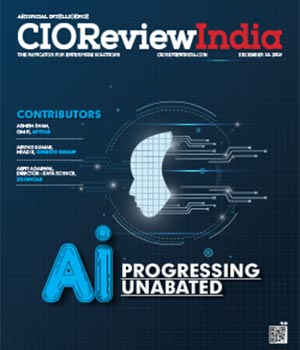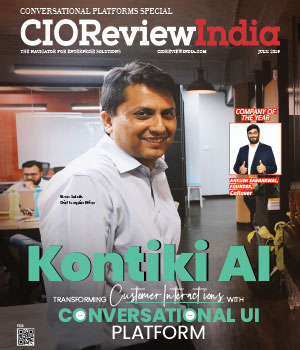
Demarcating the Ethical Bounds of Generative AI
Hridkamal Roy, Assistant Editor, CIOTechOutlook | Wednesday, 01 May 2024, 12:47 IST
 Universities across the world are forming ethical committees and guidelines to restrict students from using Generative AI tools unethically. It has been reported that many students across the world have been using GenAI tools for projects, dissertations and thesis and submitting the content acquired from those. However good and well-structured the projects might be, students are not using their own knowledge to write them but are copying the entire thing from a GenAI tool. After this came under the radar of the authorities, colleges and universities are on high alert and are creating moral and ethical committees to help students understand how usage of GenAI tools for education is detrimental to their prosperity.
Universities across the world are forming ethical committees and guidelines to restrict students from using Generative AI tools unethically. It has been reported that many students across the world have been using GenAI tools for projects, dissertations and thesis and submitting the content acquired from those. However good and well-structured the projects might be, students are not using their own knowledge to write them but are copying the entire thing from a GenAI tool. After this came under the radar of the authorities, colleges and universities are on high alert and are creating moral and ethical committees to help students understand how usage of GenAI tools for education is detrimental to their prosperity.
“The usage of GenAI tools can be permitted to some extent but ethical guidelines need to be followed by students regarding this. We have formed a committee which makes our students understand the loss they would bring upon themselves if they keep using GenAI tools. There are also restrictions on our faculty on how much of GenAI technology they can use”, mentioned Prof. Dr. Jamalunlalli Abdullah, Asst. Vice Chancellor, UiTM Malaysia.
There have been many other instances across sectors other than education where the usage of GenAI tools are providing quick results and making professional dependable on it. In this regard, it is important for businesses and authorities globally to draw a line between the ethical and unethical practices related to the usage of GenAI tools. It is high time that we understand the right ways to use this technology and put an end to all unethical practices that have grown around it.
GenAI Usage in Fashion Industry
Personalized GPTs have been introduced by fashion e-commerce companies that initiate interactive sessions with consumers regarding their fashion requirements and choices. This initiative has been utterly helpful for the consumer population as they can now ask any fashion queries to an AI chat system that can analyze the consumer queries and provide the accurate responses. It is very typical for Indian consumers to keep asking for more and more variety and discounted prices and these systems are constantly being trained in that. AI chatbots are able to take the consumer in an unending journey of fashion and tending to even the smallest of requirements. This has made e-commerce shopping more hassle free and exciting at the same time.
In this regard, fashion e-comm company Myntra’s FashionGPT can be set as a very good example. At the Conversational AI and Customer Experience Summit 2024 that was held a few days ago, Myntra’s UX Director, Alok Kumar explained why and how FasionGPT can transform the shopping experience for consumers.
“The shopping experience at Myntra will be just like what it is in retail. Our conversational AI can show consumers as much as they want to see and more”, Alok Kumar said at the Summit.
GenAI Exploitation in the Education Sector
We all must have heard about Whitehat Junior that was started to provide coding knowledge to children. It still does that but has also diverted to other e-learning courses also. Good coding knowledge without having a basic education can create a knowledge gap in the child which can have negative effects on the career in the long run. Reputed engineering institutions across the country have been providing this knowledge to the undergraduates because that is the right time for an individual to learn coding and not before that. Similarly, with the advent of GenAI tools, the gap created can be utterly destructive. Students are submitting GenAI created dissertations and thesis that they are having very less knowledge about. These tools are providing a short cut process for students to get done with their assignments quickly. What they do not understand perhaps is the effort through which a project is written is the actual education they require.
In this regard, committees and boards are being created inside campuses globally to make students understand the rules that need to be followed regarding usage of GenAI. International universities have taken this matter very seriously and are being very strict about the GenAI guidelines. The ethical committee for the usage of GenAI at Universiti Teknologi Mara, Malaysia can be put as a good example in this aspect.
The above are two distinct usages of GenAI that are being done currently globally. On one hand, systems like FashionGPT are adding value to the fashion industry as whole by providing an enhanced consumer experience, and on the other students are using ChatGPT resources that are detrimental to prosperity of the entire education sector. However, we can see improvements where professionals are talking about the ethical and unethical aspects in terms of GenAI usage and educational institutions taking steps to restrict the usage of them by students. We can hope that the situation will get better in the coming years.
CIO Viewpoint
Harnessing the Power of AI and ML for Business...
By Vinod Subramanyam, Managing Director, Brillio
The Key to Achieving Real-time AI: Optimizing...
By Mukundha Madhavan, APAC Tech lead, Datastax
Smart Payment Solutions: The Role of AI and IoT...
By Manoj Varma, Head - Payments, Lyra Network, India
CXO Insights
Data Virtualisation: Optimising Access and...
By Puneet Gupta, Vice President and Managing Director, NetApp India/SAARC
Navigating the Ethical Frontier: Transforming...
By Varun Shah, Software Development Manager, Amazon Services LLC
AI and Sustainability Forge the Future of Tech...






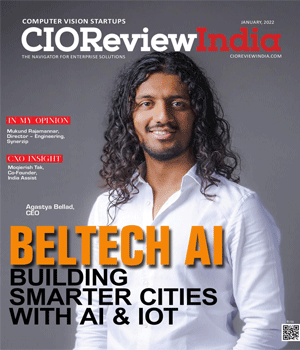
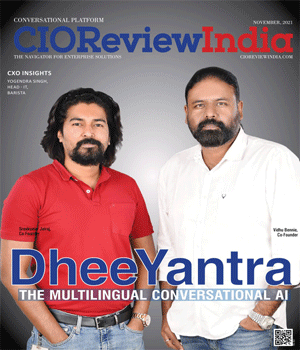
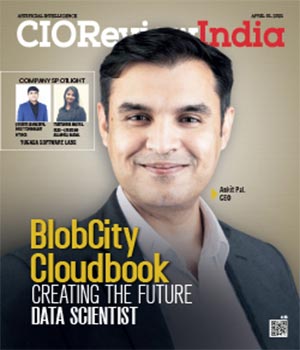

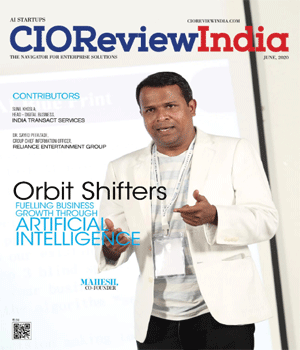
.jpg)
.jpg)
.jpg)
